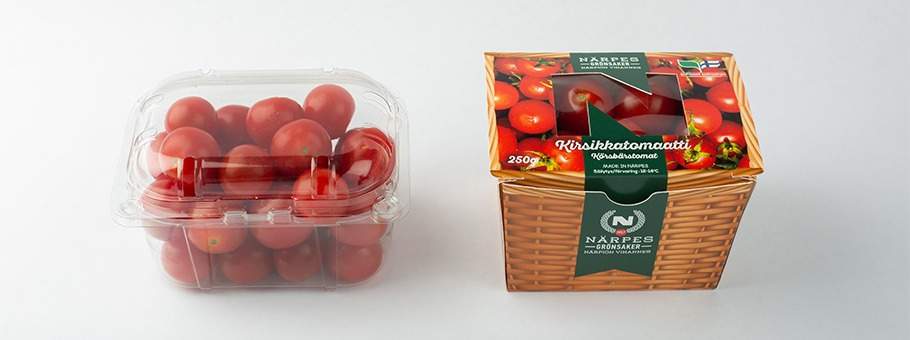A new study undertaken by Metsa Board has revealed that Finnish customers find paperboard to be a more responsible choice than plastic packaging to pack cherry tomatoes.

Image: Metsa Board conducted a study to compared cherry tomato cartons made of paperboard with the plastic box. Photo: Courtesy of Metsä Board.
Metsa Board has partnered with Finnish vegetable co-operative Närpes Grönsaker for the study to compare cherry tomatoes cartons made of paperboard with plastic boxes.
Sense N Insight, an external consumer research company has carried out a detailed consumer study as part of the research in Finland.
The results showed that consumers perceived paperboard as a more convenient, aesthetically pleasing and responsible choice than plastic packaging and this implies customers are willing to pay more for it.
The study demonstrated that the paperboard cartons have preserved the cherry tomatoes equally in performance to the plastic packaging. Customers’ perceived paperboard was with a high-status value and added to the quality image of the product.
Most of the participants stated that they would prefer paperboard because of its recyclability but commented that they wanted to see the product better.
The company claims that the overall findings concluded that the participants were willing to pay more for the paperboard carton than the plastic box, which reveals that consumers are actively looking for alternatives to plastic.
The other part of the study included knowing more about the shelf-life and climate effect of growing cherry tomatoes and revealed that growing cherry tomatoes is valuable and critically nothing goes to waste.
The Natural Resources Institute of Finland researched the shelf-life of cherry tomatoes packed in cartons made of different Metsä Board paperboard grades and in a plastic box made of recycled PET.
The climate effect of a recycled PET container was measured in the research, which was calculated at six times higher than the average value for the paperboard cartons.
This part of the research was based upon production and transportation data and additional paperboard production data supplied by Metsä Board.
The research determines that compared to all other food packaging, the climate effect on the box of cherry tomatoes was very small.
The company said majority of the impact comes from the packed food and therefore it is of highest importance to avoid food wastage and to proper packaging ensures that the food will be consumed, and nothing goes to waste.
